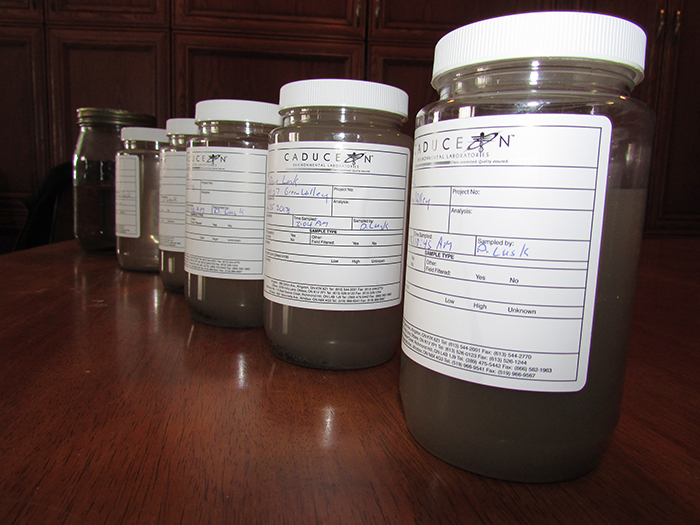
By Pam Wright
Local Journalism Initiative Reporter
Chatham-Kent council has agreed to ask the province to conduct a health hazard study to examine sediment found in fouled water wells in North Kent.
As per a motion put forward by North Kent Coun. Rhonda Jubenville, it means the municipality will be formally asking the Ministry of Health to proceed with a “specific health hazard testing that remains incomplete,” following the province’s 2021 all-hazard study.
The motion specifically asks for sediment testing in wells within the footprint of the North Kent 1 Wind Farm, the East Lake St. Clair Wind Farm and the Boralex Wind Farm, to see if heavy metals found in the well sediment are bio-accessible and toxic to the human body.
Jubenville expressed her appreciation for the yes vote.
“Thank you to my fellow councillors and mayor on behalf of the residents of North Kent,” she said.
Jubenville’s motion was approved within council’s consent agenda with no discussion. However, several deputations on the matter were heard from well owners, as well as geologist Keith Benn, who sat on the expert panel for the government’s all-hazard study.
“There are serious and well-founded concerns,” Benn said in his deputation, adding the problem goes beyond “esthetic problems.”
Benn said the original study did not sample the fine-grained sediment.
“Not a single sample of sediment was collected or analyzed,” Benn said, adding the contractor who conducted the study used methods “not conducive” to the examination of fine silts and clays.
“Bio-accessibility studies need to be done,” he said.
Christine Burke, a well owner near Mitchell’s Bay who is a member of the Wallaceburg Area Wind Concerns group, told council the issue is “hard to imagine, unless you live with it.”
Holding up a sample of grey, murky water from her own well, Burke said the matter is urgent.
“The sediment in our well water is not sand,” she stressed.
Burke helped spearhead a GoFundMe effort to help pay for expensive testing of nine private wells, raising around $12,000 in short order. The tests, conducted earlier this year and analyzed by a private laboratory in Michigan, found levels of heavy metals including arsenic, cadmium, nickel and lead that may be bio-accessible carcinogenic to humans.
Council heard similar concerns from other well owners, as well as a real estate agent who said property values are affected by the well issue.
The dirty water wells issue has been a political hot potato in Chatham-Kent for a decade, when some property owners discovered their well water turned black when the wind farms were constructed. Residents have long complained to officials that their wells were ruined ever since the construction of turbines started. They’ve repeatedly brought their concerns to Lambton-Kent-Middlesex MPP Monte McNaughton since 2011 and even to Doug Ford, prior to his being elected premier in 2018.
At the time, Ford promised a health hazard study, but that was changed to an all-hazard study. When the study was carried out, no wells in the Dover area were sampled and no sediment testing was carried out.
The North Kent 1 wind farm consists of 34 wind turbines, and the East Lake St. Clair Wind Farm near Mitchell’s Bay has 55 turbines in operation. There are another five turbines operated by Boralex on Marsh Line in Dover.
Benn said he learned there was no sediment testing by the provincial probe after the fact.






